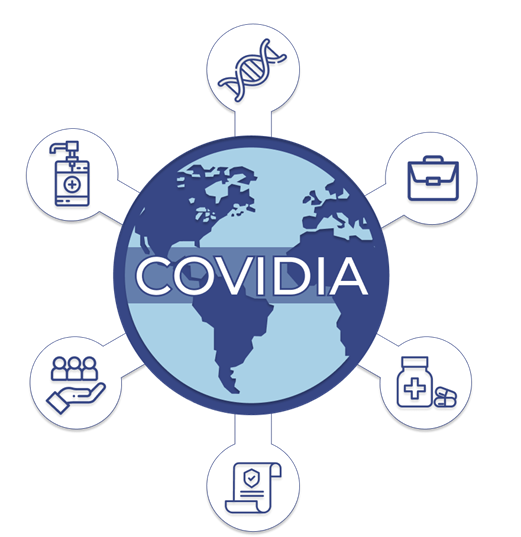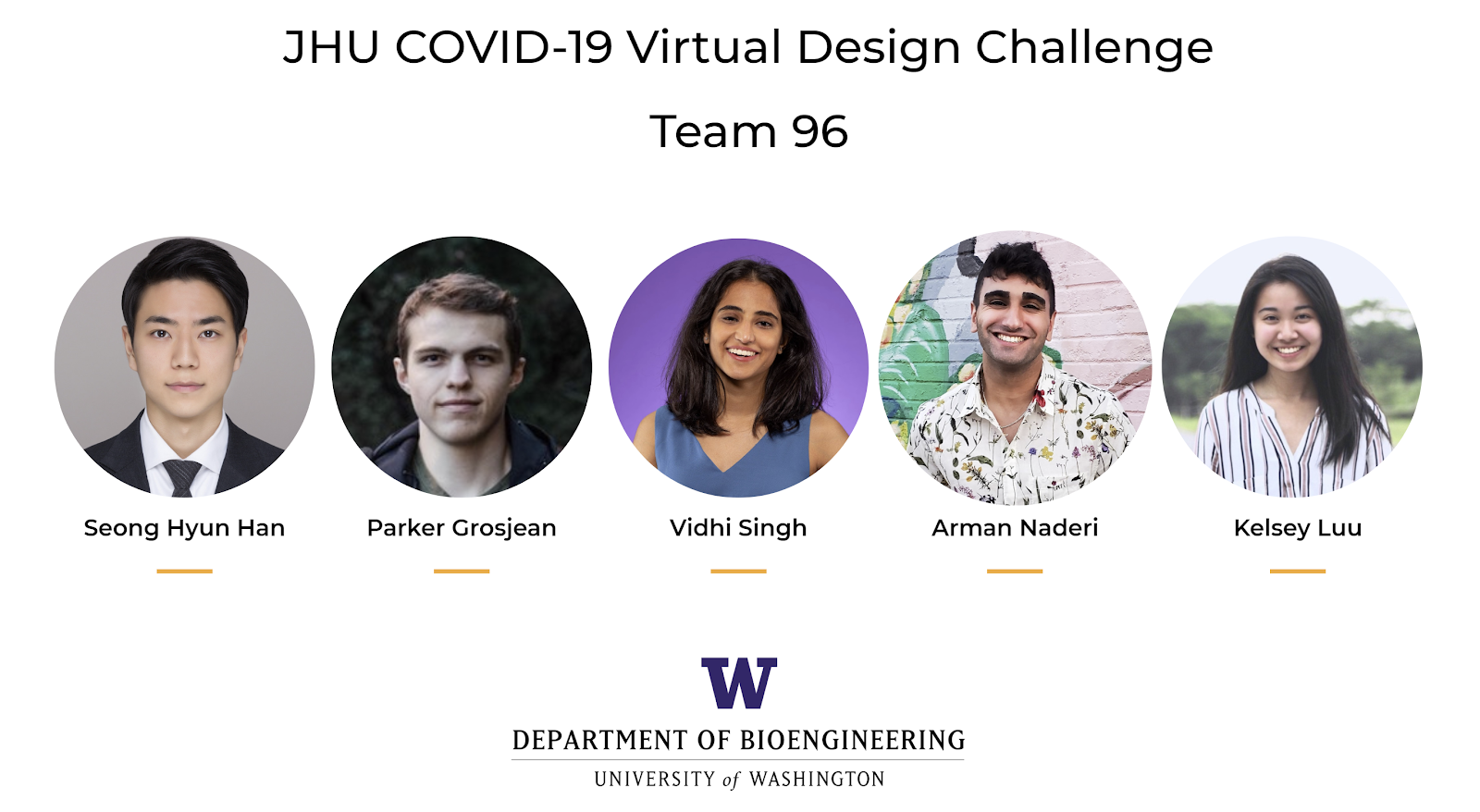A group of UW Bioengineering undergraduates came together this spring to develop a way to promote public understanding of the COVID-19 crisis. Through two design challenge competitions and the aid of mentors, they have refined their idea and are developing a platform that aims to capture how well the public understands the disease and identify gaps in knowledge.
The five bioengineering friends, all seniors, had just started spring break in late March when they learned about a COVID-19 Design Challenge at Johns Hopkins University and decided to form a team. Although they were still adapting to a new landscape of remote learning and physical distancing, they all wanted to help address the new global threat.
“It was a good opportunity to apply everything I’ve learned in the past two to three years in bioengineering,” says Arman Naderi, who just received his B.S. and plans to continue his work in Professor Abert Folch’s lab toward a master’s degree.
 Managing Information
Managing Information
Within a few days, the team developed an idea around how to improve accurate communication of COVID-19 – one of the competition’s themes – and created their report and a video presentation, competing against some 1,200 people from 25 countries. Their idea was an app to gamify learning COVID-19 public health information, while mitigating the internet’s flood of material, both true and false.
“We wanted to engage the public in a fun way so they would be interested in learning information about the coronavirus disease instead of being inundated with heavy text from many news and journal sources,” says new graduate Parker Grosjean, who worked in Assistant Professor Kelly Stevens’ lab and will be pursuing a Ph.D. in biomedical informatics at University of California, San Francisco.
Adds Arman: “Information overload has been a problem with us, as youth who are familiar with the internet and apps, so I can’t imagine what it’s like when you get blasted with information from a thousand sources from a Google search. How do you know which one is the right one, and how not to click on that fraudulent news source that is just there to get your view?”
The extra-curricular project has forced the students to think beyond their technical, bioengineering skill set.
“From a practical standpoint, one of the biggest challenges for us was formulating a solution that not only had potential for widespread adoption and impact, but was also deployable on a very short timeline,” says new graduate Kelsey Luu, who works in Assistant Professor of Pediatrics Timothy Cherry’s lab at Seattle Children’s and will be pursuing a Master of Biomedical Informatics at Harvard.
“Luckily, we have been prepared with this engineering design process that can be applied to any problem, and we’ve used that to our advantage when iterating upon our solution,” Arman notes.
After their spring break experience, the team thought perhaps they could take their idea further. The UW Dempsey Startup Competition application was due just days later. Writing an executive business summary forced them to think about the realities of implementation.
“What we didn’t know about business competitions is that you need to show what your profit is,” says new graduate Vidhi Singh wryly. “Given that we’re trying to disseminate public health information, it didn’t seem fair to put a cost to it,” notes Vidhi, who worked in Professor Paul Yager’s lab and is a 2020 Fulbright scholar and Husky 100 recipient. The solution was to propose nonprofit status for the competition, and they called their information platform COVIDIA.
Revising their Strategy

This spring, UW bioengineering and computer science students began designing an application that will encourage learning of public health information related to COVID-19. Not pictured: Olga Andreeva, who joined the team for the Dempsey Competition.
Through the Dempsey competition, the students found community mentors willing to share advice about the nonprofit’s focus and direction. UW professors connected them with physicians, an infectious disease pharmacist, and engineers. One mentor, a software engineer at Intuit, helped put into perspective the process and skill set for developing an application.
With input from mentors, the team revised their strategy from being consumer-focused and delivering information about the disease to providing public health entities with regionalized information about the public’s understanding of the crisis.
Local Partnership
Team COVIDIA advanced to the top 32 in the Dempsey Startup Competition. As a proposed nonprofit, they didn’t make it to the investment round, but in addition to their mentors, local venture capitalists and business consultants liked their idea, approached them and have been talking with the team. COVIDIA is currently collaborating with Charles Roxin, managing director at Global Health News Network, to explore implementing their idea.
Team members also include new graduate Seong Hyun Han, who worked in Associate Professor Barry Lutz’s lab and plans to pursue graduate studies in developing infectious disease diagnostics following a gap year, and Olga Andreeva, a recent computer science graduate who will be working at Facebook and who joined for the Dempsey Startup Competition.
“As we’ve gone further along in this process and met computer science or business competition people who wanted to speak with us, we gained greater validation of our idea,” Vidhi says. “We put our idea out there, and it was exciting to see other people reciprocate, show their support and let us know we’re on the right track.”
Adds Seong Hyun: “Overall, I think we all realized that as bioengineers, especially with the constant flood of news on the rapid development of the disease and having multiple members that worked in labs that were rushing to develop COVID-19 diagnostics, we wanted to contribute in any possible way to mitigate this pandemic. We were all really glad to have participated in the two competitions and still strive to develop a helpful platform that can be used when another disease outbreak occurs.”
Read about more coronavirus-related projects in the UW Bioengineering department.



